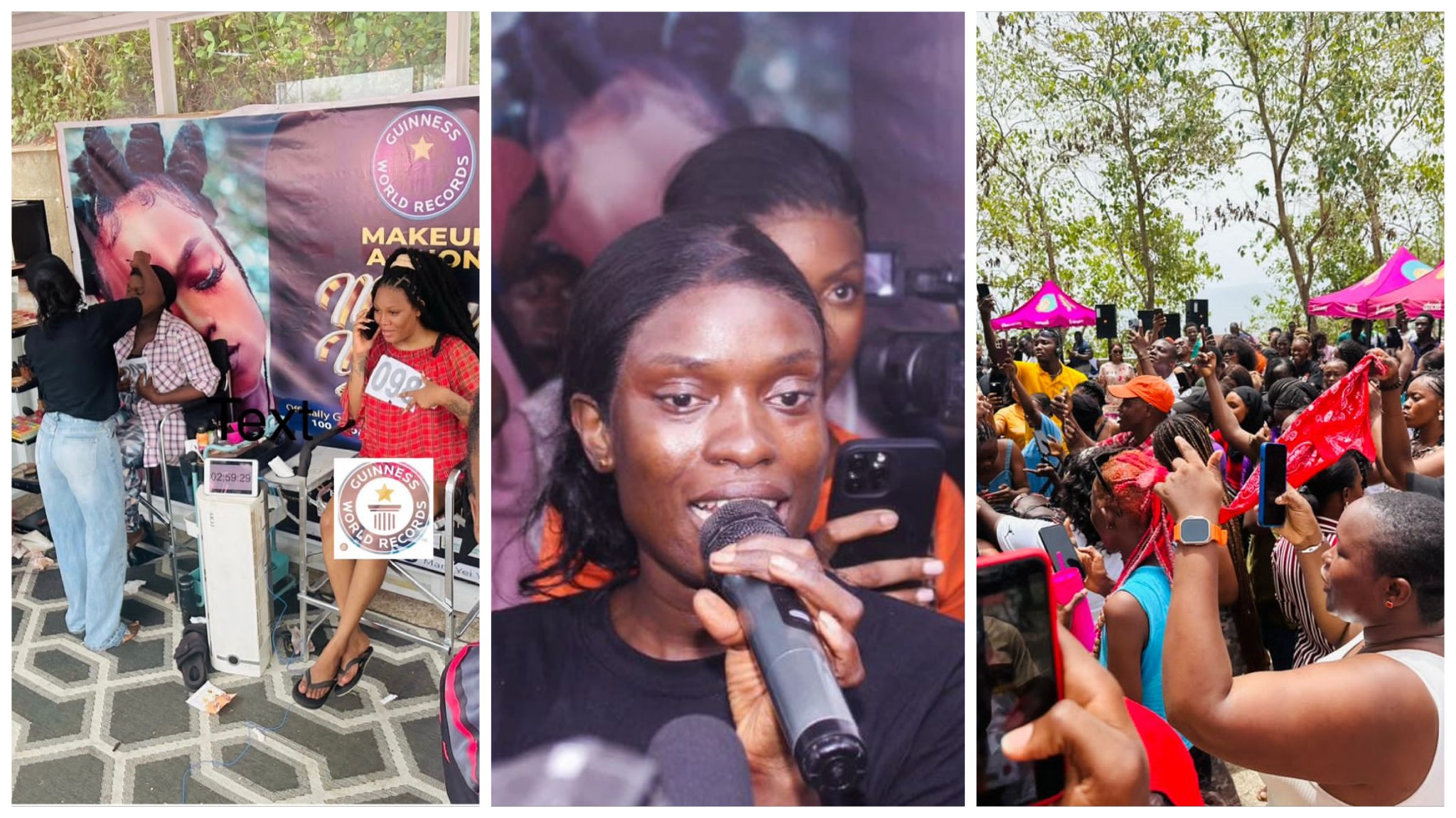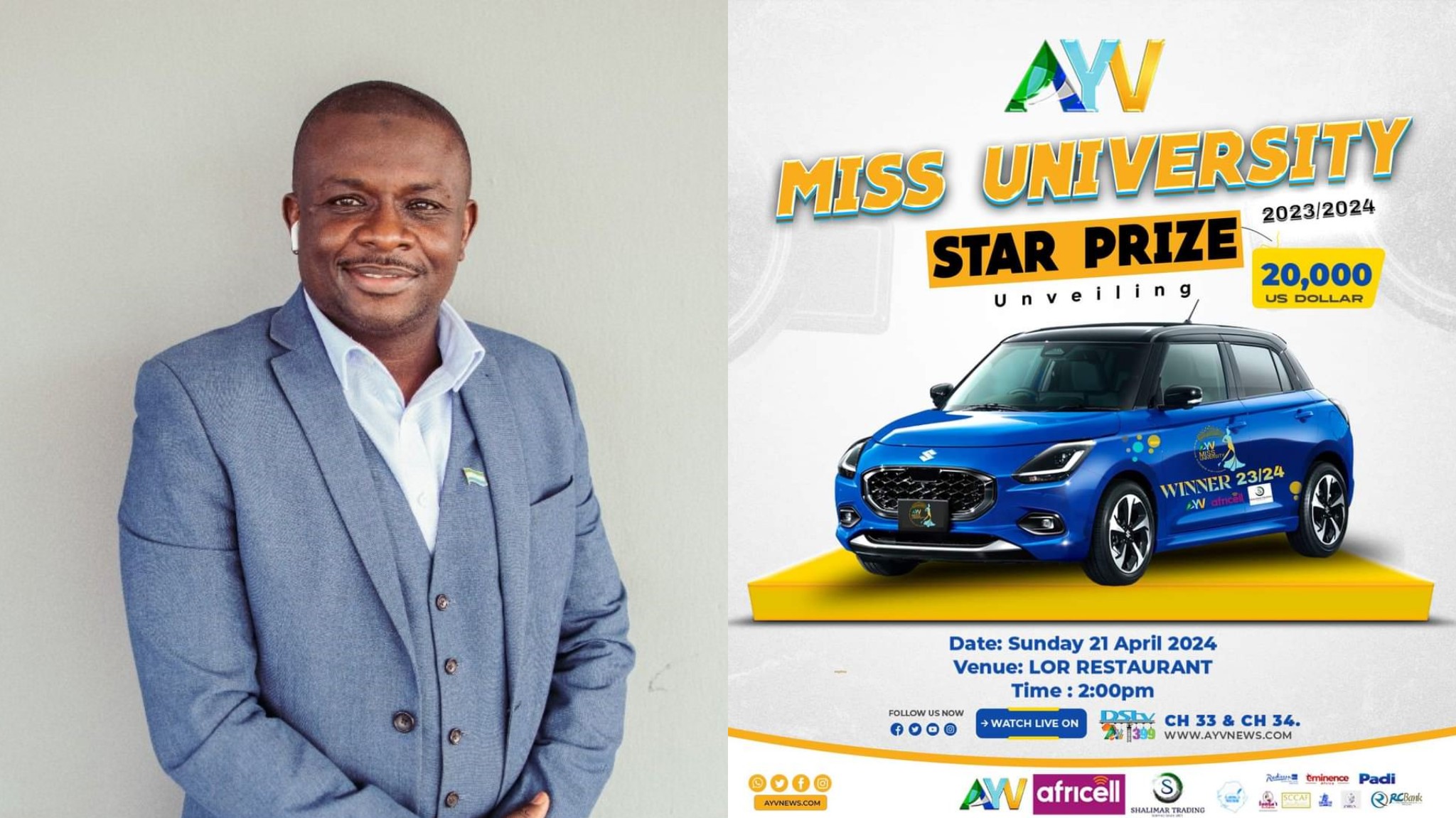
Respectfully Submitted by Hassan Foday Marah – The Marshall
It’s almost 30 years since the Kabba’s hit song “Di World Don Lef Nar We Hand” was released. Is Sierra Leone being looked after as it should be?
As I reflect on the Kabba’s “Di World Don lef Nar We Hand” a few questions comes to mind that I want to take a few moments to explore with you. This song is about us, empowering ourselves and moving away from tribalistic tendencies and nepotism so that we can fully focus on nation building in order to catch up with the rest of the world. The questions the Kabba’s asked some 30 years ago are still left unanswered today and some of us are left trying to figure out answers to them.
Why is Sierra Leone not growing, what should we be doing to develop our country, what nationalistic plans should we put in place as a country, what does the Sierra Leone we want to see look like?
Other questions that come to mind listening to this song are where are the builders, visionaries, innovators that are ready to stop “talking the talk” and start doing the work. Why are the ones that are always complaining not stepping up? Why does it seem that those with options are the ones stepping up? Why are we contributing to building the rest of the world, but not Sierra Leone? And what needs to change in order for us to get answers to these questions. Are we afraid? If so what are we afraid of?
Should we be thinking of a unified National Development Plan where all Sierra Leoneans, have a say in the areas of development that they feel is important for our growth. This plan should be endorsed and agreed upon by all political parties and leaders that wish to govern our country. This will be the Road Map that we use for the next 30 plus years to guide our nation towards sustainable growth and development.
For decades, Sierra Leone has been and continues to be an extraction hub, but we are not seeing the returns on investment on the value of our nation, nor are we seeing it in the lives of the indigenous of our country. How do we ensure that Sierra Leone and its population enjoy and/or see the return of these extractions?
Firstly, we need to re-evaluate how we choose our leaders. What is it that we are looking for when it comes to leadership? Are we looking for leaders that will put Sierra Leone first and not just their personal enhancement and Special Interest? Are we looking for leaders that value the importance of a Sierra Leone where its people are self-sufficient, have options for employment, can access good medical facilities, and believe in investing in our future leaders so that they can contribute to the new Sierra Leone? Are we looking for leaders that genuinely care about the country and its people, leaders that are forward thinking, innovative, strategic and constantly striving to look at the bigger picture OR we just choosing leaders because of moments, political affiliations, nepotism and tribal and/or regional lines?
Moving forward, Sierra Leone should make it mandatory for companies and potential investors to understand that Sierra Leone is open for business, however Sierra Leoneans want to see a return on their investment. We need to strive to attract and bring in ethical companies that have a passion for investing in people, this will help in developing our human capital by creating a workforce that is consciously competent and well developed to contribute to the growth of our nation.
Government should invest in Colleges and Vocational Schools that work to educate, train and produce professionals with employability readiness and not just graduating people for the sake of passing exams and getting a certificate at the end. A skilled and ethical workforce will position Sierra Leone at level playing field to compete with the rest of the world.

As a nation, we need to look at how we centralise our thoughts, ideas and projects, but decentralise our workforce so that everything is not centralised in Freetown. One way we can do this is by having an investment policy that clearly outlines the benefits and commitments for those wanting to invest in Sierra Leone. We should make it mandatory that investors coming in should have their Head Offices in their region of operations, as this will reinforce their commitment as an ethical company that not only believe in our national development but they have a passion to develop our people.
Sierra Leone is a religious country, and a country that thrives off of religious and tribal tolerance. However, as a country we can’t pray ourselves out of the current state of play that Sierra Leone is currently in but rather, we should look and try to develop areas that will stimulate a narrative for sustainable growth and development. For a country to survive, we need clear leadership (as exhibited in Rwanda, Dubai etc) and all its people to subscribe and contribute to the development goals of that country. Sierra Leone should not be left at the whim of political power struggles. But rather political leaders both National and regional levels should subscribe to a Sierra Leone First Agenda, working collaboratively to ensure that they understand, pledge and champion the Big Society plan for a better Sierra Leone.
Finally, I reflect on the last words of Margaret Rowe – Dean of School of Health and Society at the University of Salford Manchester as she was speaking to fellow graduates on the importance of stepping up to the challenge, working hard to be counted and contributing to the global shift. Dean Rowe finished her statement by saying:
“There are really only three types of people: those who make things happen, those who watch things happen, and those who say and/or wonder, What happened?”
Almost 30 years on since the Kabba’s Hit Song “Di World Don Lef Nar We Hand”, I bring this to you; Sierra Leone is still in our hands. My question is, what are we going to do with Sierra Leone to make sure that the next 30 years is not the same as the previous?



